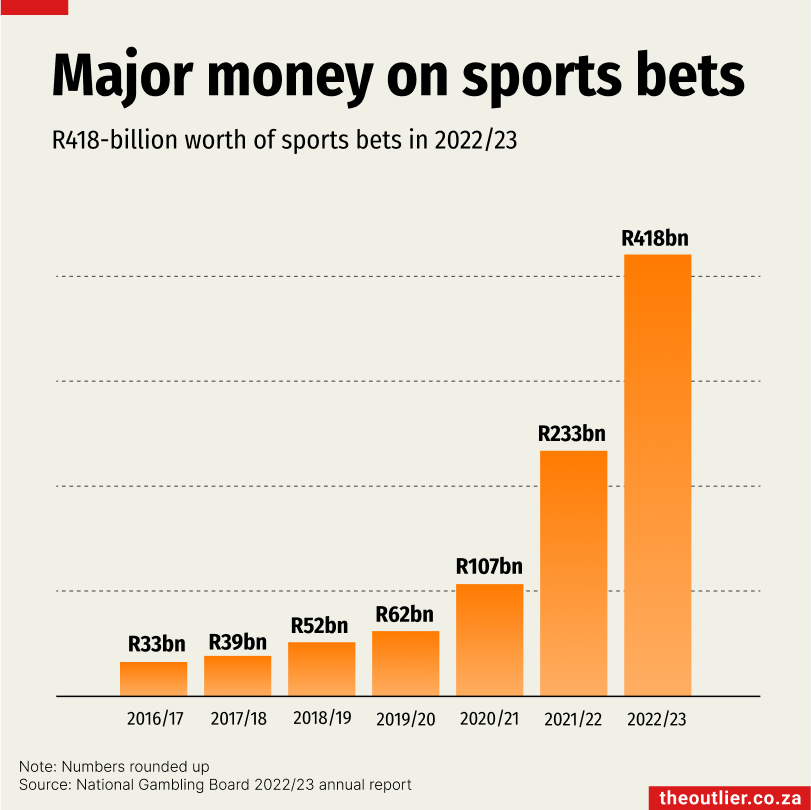
The Rise of Online Gambling in Nigeria: A Regulatory Tug-of-War
Regarding online gambling, Nigeria is touted as one of the most exciting markets globally, thanks in no small part to its youthful population. Of the country’s estimated 206 million people, 70% of them are under 30, and 42% are under the age of 15.
With a population growing at 2.6% a year, Nigeria’s population could double within the next 30 years, and its structure makes it an economic asset and one of interest to all future-facing industry sectors. The average age in Nigeria is 19. This truly is a youthful and vibrant nation.
It is easy to see why there is genuine excitement about how the Nigerian gambling industry can grow and surpass South Africa as the premier gambling nation in Africa. It Current forecasts estimate the country will have a gross gaming revenue of $717.2 million by 2025. However, there is an ongoing legal battle over regulation, which means that success might not be as easy as anticipated.
Regardless of the potential regulatory hurdles to be crossed, the market has moved from having mainly local operators to international brands like Betano and Betway making an entry. Many Nigerians are learning about online gambling and trying their hands at all kinds of iGaming opportunities, from online slots to casino games and sports betting. While card gambling has always been popular in the country, online gambling and live dealer games mean many people are doing desk research before committing to real money bets. Internet searches for “how to play roulette guide” and best online casinos have recently surged.
However, there are obstacles for players and operators alike to overcome. Tension is being created by the country, which has both federal and state regulators who do not always see eye to eye. It has been reported that there is mounting tension between. For example, The National Lottery Regulatory Commission (NLRC) regulates the industry at a federal level, but some state regulators have been known to refuse to recognise the licenses it issues.
A long-running dispute has even reached the country’s Supreme Court. The argument is about whether federally licensed operators also need to have a state license. It is very much a case about whose rules are superior and how the hierarchy works. It is not yet known when a ruling is expected in this case. This could be off-putting for international operators looking to invest in the country. Operators want a clear-cut regulatory system so that they know where they stand, but this is not how Nigeria currently functions. Each state wants to regulate betting as they see fit, but the federal government also wants to regulate it to maximise revenue. No one is really sure about how to pay for operating licenses and which ones are required.
Harmonisation is vital to make the market attractive. While all operators have to have an NLRC license, the current laws make no mention of online gambling. It is still uncertain as to whether operators with federal licenses for bricks-and-mortar establishments also need state licenses. However, as things stand, all online operators companies with an NLRC license are free to operate nationwide and without specific state licenses. The industry is crying out for increased collaboration between federal and state regulators.
There are many financial implications to what is decided about national and state licenses, as both are subject to license renewal fees and monthly gaming taxes. It should come as no surprise to see that no one wants to lose out on precious revenues. The feeling from online international operators is that they would prefer to deal solely with one national regulator.
One of the state regulators at the heart of the ongoing tensions is the Lagos State Lotteries and Gaming Authority. With Lagos being Nigeria’s biggest city and a cultural and entertainment hub, its population of over 20 million people means the regulator here has considerably more influence than one in a standard-sized European country. The LSLGA’s chief executive is keen to see the case settled so that the country can continue on its upward trajectory.
There is a well-known saying advising people ‘not to frighten the horses’, which seems appropriate for Nigeria’s gambling market today. If the country wants to see inward investment and pip South Africa to the top slot, it is important not to spook the commercial operators or make them feel they are at risk.
The LSLGA has worked hard to create an attractive, stable, regulated gambling market, and its chief executive says they have worked hard with the Malta Gaming Authority and regulators in Cyprus and the UK to establish their model and framework. He claims that Lagos is the benchmark for the country. It is very open and transparent, and it is easy to set up business here. He is reported as saying that,
“Lagos is a country of its own, with highly educated people and internet very much available. It’s also the entertainment capital of Africa, so it’s highly promising, especially with the first esports arena in West Africa being in Lagos.”
BetKing has taken the LSLGA at their word. As the operating arm of the sports betting and entertainment group BetKing, they announced a deal with Genius Sports earlier in the year to offer in-play content for Nigerian sports like basketball and football.
The other issue of concern in the country is the presence of illegal operators, and it is hoped that improved regulation will remove rogue operators and better protect the public. Therefore, there are plans to strengthen regulatory frameworks, promote responsible gambling, and build strong partnerships between industry regulators and all the stakeholders. One of the suggestions is that regulators need to make taxation favorable enough to ensure gamblers and operators do not stray into the black market.
To that end, in October 2023, the LSLGA banned operators from operating without licenses. However, until such bans are enforceable across the country, it is difficult to see how the whole market can be moved to a safe and regulated environment. The Supreme Court battle is pretty high stakes.
Source: Pulse Nigeria










